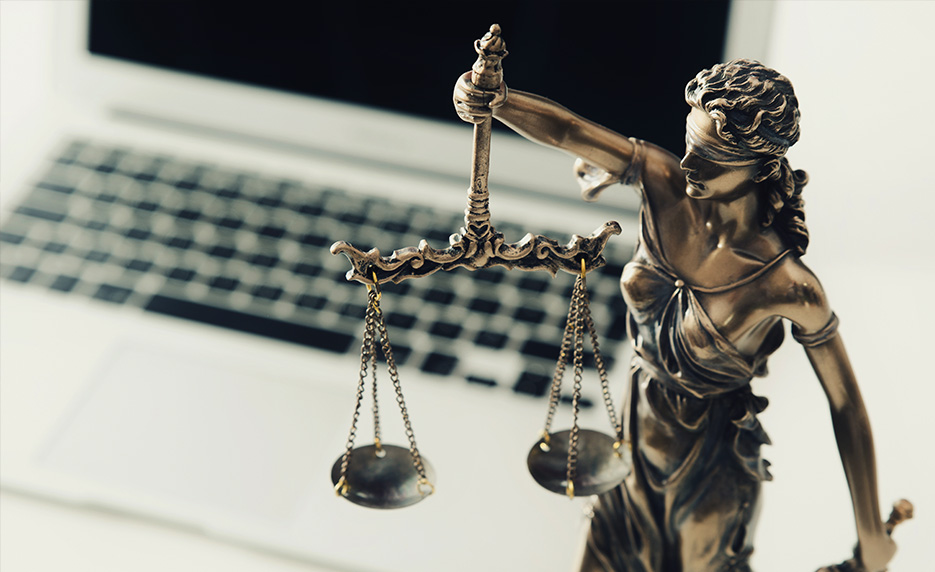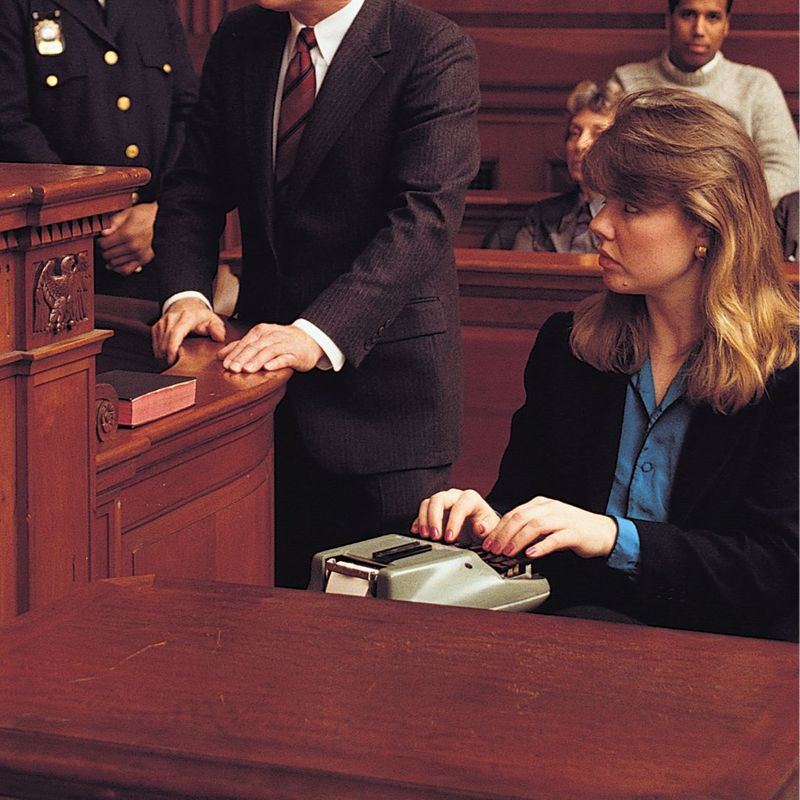The history and evolution of durham court reporting in the U.S. legal system
Everything About Court Reporting: Important Insights Into Its Relevance in Legislation
Court reporting offers a crucial feature within the legal structure, giving a exact and trusted document of proceedings. Through advanced methods and devices, court reporters catch the subtleties of testimonies and lawful discussion. The relevance of their job expands past plain transcription. As the lawful landscape develops, so also does the role of innovation in court reporting. Recognizing these characteristics discloses much deeper effects for justice and transparency in the legal system.
The Function of Court Reporters in the Legal System

Usually ignored, court press reporters play a necessary function in the legal system by making certain a precise and verbatim document of process. Their primary responsibility includes transcribing spoken words throughout trials, depositions, and other legal occasions, which works as a main record for future recommendation. This paperwork is crucial for appeals, as it supplies the essential details for reviewing choices made by judges and courts.
Stenotype reporter should possess phenomenal listening abilities and a deep understanding of lawful terminology to capture the nuances of statement and argumentation accurately. Their job adds to transparency within the judicial process, permitting liability and fairness. Additionally, they help with access to justice by making documents available to included parties, making certain that every person has the possibility to evaluate the proceedings. This way, stenotype reporter copyright the integrity of the legal system, enhancing the importance of precise communication in issues of law.
Strategies and Tools Made use of in Court Reporting
In court reporting, numerous techniques and tools enhance the precision and performance of transcription. Stenography technology plays a substantial duty, permitting press reporters to catch spoken words promptly, while digital recording methods offer alternate options for documentation. Recognizing these devices is crucial for grasping just how court reporters accomplish their crucial feature in the legal system.
Stenography Innovation Introduction
Stenography modern technology works as the keystone of modern-day court reporting, enabling reliable and specific transcription of spoken discussion. Using specialized devices called stenographs, court reporters can record speech at amazing speeds, commonly going beyond 200 words per min. These devices use an unique key-board layout that permits several secrets to be pushed all at once, producing phonetic depictions of words - durham court reporting. This method reduces the need for considerable punctuation and improves transcription precision. Furthermore, clerks utilize different shorthand strategies and icons to additional simplify the process, making certain that no detail is neglected during procedures. The combination of stenography technology not only fosters efficient communication in legal setups however additionally upholds the honesty of the judicial procedure by providing trusted and accurate documents of discussions
Digital Recording Techniques
An enhancing number of court reporting specialists are turning to electronic recording approaches to enhance the precision and efficiency of their transcriptions. These strategies utilize sophisticated audio and video clip technology to catch process in real-time. Digital recorders, usually paired with top notch microphones, ensure that every word talked is preserved with clearness. Specialized software can record audio documents automatically, permitting for quicker turn-around times. Some experts incorporate dual recording systems for redundancy, guaranteeing no vital info is lost. Additionally, electronic recordings can be conveniently indexed and browsed, assisting in speedy retrieval of details segments. As legal environments develop, embracing these digital tools not only simplifies the reporting process yet likewise keeps the stability of the record.
The Value of Accuracy in Transcription
Accuracy in transcription is crucial in court reporting, as it guarantees that legal records reflect real web content of proceedings. This precision can greatly affect situation results, impacting the decisions made by judges and juries. As a result, maintaining high standards of precision is critical in the legal profession.
Accuracy in Legal Records
The legal system depends greatly on eloquent arguments and persuasive unsupported claims, the true foundation of judicial process exists in the precision of lawful documents. Exact transcription is necessary, as it guarantees that every declaration, ruling, and question is recorded appropriately. Such precision offers several purposes, consisting of offering a dependable reference for allure processes and keeping the honesty of the judicial system. Errors in transcription can result in misunderstandings, false impressions, and possibly detrimental consequences for all celebrations included. Subsequently, court press reporters have to have outstanding abilities and interest to detail, as their work directly affects the clearness of legal documents. Ultimately, the precision of legal documents underpins the trust fund placed in the judicial procedure, reinforcing the value of thorough transcription.

Effect On Instance Outcomes
When legal procedures unravel, the accuracy of transcription typically determines the trajectory of a case's result. Precise court reporting assurances that every word spoken is effectively recorded, making it possible for attorneys, courts, and courts to make educated choices based upon the document. Errors in transcription can result in misconceptions, false impressions, and possibly unjustified judgments. The honesty of lawful files relies heavily on the accuracy of these records, as they function as the foundation for appeals and further lawsuits. In high-stakes instances, where the effects are extensive, the duty of a court press reporter becomes a lot more essential. For that reason, maintaining rigorous criteria in transcription not just supports the legal process however likewise supports the principles of justice and justness in the court.
Court Reporting in Different Lawful Settings
Court reporting plays an important function across different legal setups, making sure that procedures are precisely recorded for future reference. In criminal court, stenotype reporter transcribe statements, proof, and judicial rulings, which are vital for charms and case reviews. In civil litigation, accurate records facilitate the exploration process and give a trustworthy document for test procedures. Additionally, administrative hearings frequently rely upon court reporters to preserve an official document, ensuring transparency and responsibility in governmental procedures. Household courts also take advantage of court reporting, as accurate paperwork of proceedings can affect protection choices and negotiations. Additionally, depositions in pre-trial stages require accurate recordings to capture the nuances of witness testimonies, look what i found which might be significant in forming instance techniques. Generally, court reporting acts as a foundation in the lawful system, fostering fairness and quality across varied judicial settings.
The Impact of Innovation on Court Reporting
As innovation proceeds to advance, its impact on court reporting has actually ended up being progressively considerable. Technologies such as electronic recording, real-time transcription software application, and fabricated intelligence have actually transformed traditional methods. Digital audio recorders currently record court procedures with impressive quality, allowing stenotype reporter to focus on subtleties and context as opposed to only on inputting. Real-time transcription innovations enable prompt accessibility to transcripts, advertising performance and enhancing collaboration among lawyers. In addition, man-made knowledge tools are being incorporated to help in the transcription procedure, decreasing human error and accelerating document generation. Despite these advancements, the important abilities of court reporters remain indispensable, as they supply a nuanced understanding of legal language and court characteristics. Eventually, innovation matches rather than changes the know-how of stenotype reporter, ensuring that the integrity and accuracy of legal documents are promoted in a progressively electronic landscape.
Job Opportunities and Pathways in Court Reporting
The evolution of modern technology in court reporting has opened a range of profession chances for aiming professionals in the area. Commonly, court reporters were mainly responsible for transcribing legal process. Nevertheless, improvements such as digital recording and real-time reporting have actually increased their roles.
Today, court reporters can focus on locations such as captioning for tv broadcasts, providing transcription services for legal firms, and working in the business industry for depositions or conferences - durham court reporting. Additionally, chances in remote reporting, particularly because of the rise of online courtrooms, have become significantly prevalent
Educational paths consist of official training programs, certification courses, and continuing education and learning to remain updated with technological adjustments. Networking within professional and lawful companies also plays a considerable function in job improvement. In general, the varied opportunities in court reporting show the dynamic nature of the lawful career and the enhancing demand for competent specialists.
The Future of Court Reporting in an Evolving Legal Landscape
Exactly how will the function of court reporting adjust as the legal landscape remains to develop? As innovation advances, court reporting is most likely to embrace cutting-edge tools such as expert system and real-time transcription software application. These developments may enhance precision and efficiency in catching legal proceedings. In addition, the enhancing occurrence of remote hearings demands that court reporters come to be skilled in electronic systems, guaranteeing smooth documentation no matter of area.
Concurrently, court press reporters will require to adapt their abilities to manage brand-new sorts of situations, such as those including cyber regulation and intellectual home disputes, which call for specialized expertise. In addition, the need for immediate accessibility to transcripts will press experts to supply quicker turn-around times without jeopardizing top quality. Ultimately, the future of court click here for more reporting will pivot on a balance in between typical skills and technological assimilation, making sure that the integrity of the legal procedure remains undamaged in a progressively digital globe.
Regularly Asked Questions
How Do Stenotype Reporter Handle Sensitive Details Throughout Proceedings?

What Certifications Are Needed to End Up Being a Court Press Reporter?
To come to be a stenotype reporter, individuals normally need a high institution diploma, specialized training from an accredited program, effectiveness in shorthand or voice click reference writing, and certification or licensure, depending on state requirements and regulations.
Are Court Reporters Required to Have a Permit?
Court press reporters are typically needed to obtain a license, depending on the jurisdiction. Licensing assurances that they fulfill details criteria of effectiveness and professionalism and trust, which is necessary for preserving the integrity of legal process.
How Do Stenotype Reporter Take Care Of Various Accents and Dialects?
Court reporters take care of different accents and dialects via extensive training, technique, and knowledge with various speech patterns. They typically utilize specialized software and techniques to properly record spoken words, ensuring clarity and accuracy in their records.
What Is the Typical Salary for a Court Reporter?
The average wage for a stenotype reporter differs by location and experience, commonly ranging from $50,000 to $80,000 each year. In high-demand areas, wages can exceed $100,000, mirroring the profession's relevance and specialized skills.
Often forgotten, court reporters play an important duty in the lawful system by making sure a exact and verbatim document of proceedings. In criminal court, court reporters record testimonies, evidence, and judicial judgments, which are essential for charms and situation reviews. Household courts likewise benefit from court reporting, as exact documentation of procedures can influence wardship choices and negotiations. Typically, court reporters were mainly liable for transcribing lawful proceedings. Today, court press reporters can specialize in locations such as captioning for television broadcasts, supplying transcription services for legal firms, and functioning in the company field for conferences or depositions.